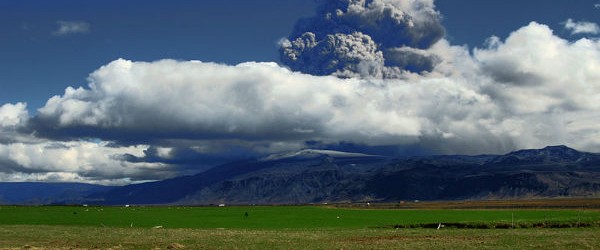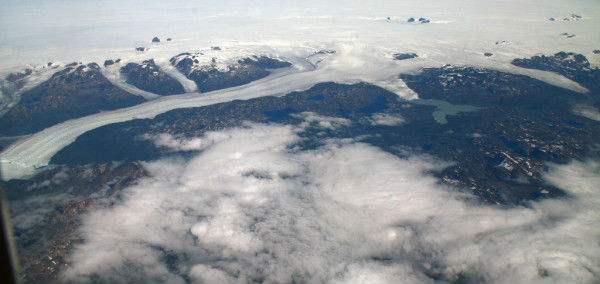Source: The Watchers - 12/27/12, By Chillymanjaro

The evidence from a ten-year research project into the volcanoes of Central America indicates that climate change can also cause volcanic eruptions. Researchers have observations of ash layers in the seabed and have reconstructed the history of volcanic eruptions for the past 460,000 years. A clear match in patterns appeared after comparing previous patterns with the climate history. Periods of high volcanic activity followed fast global temperature increases and rapid melting of ice. Studies of other cores from the entire Pacific region also showed precisely the same pattern.
In periods of global warming the glaciers are melting on the continents much faster, causing sea level rises. Scientists from GEOMAR (Helmholtz Centre for Ocean Research Kiel) explain when the weight on the continents decreases, the weight on the oceanic tectonic plates increases; so the stress changes within in the Earth to open more routes for ascending magma. When the ice sheets melted and the ocean basins filled with water more volcanic eruptions, more earthquakes and sub-marine landslides occurred.
Volcanologist Bill McGuire explains that this is caused by the Earth’s crust bouncing and bending in response to the melting of the great ice sheets and the filling of the ocean basins. As ice sheets melted, the Earth below bounced back, while sea basins bended to take the additional water. McGuire pointed out that while these changes would not cause geological events to take place that would not have happened anyway at some point in the future, he did warn that these events could become more concentrated with climate change.
New study reveals that we are currently at the end of a really warm phase. The rate of global cooling at the end of the warm phases is much slower, so there are less dramatic stress changes during these times. However, the impact from human-made warming is still unclear based on current understanding.
According to Oxford University geologists Ben Mason and David Pyle. The Earth has volcanic seasons, with eruptions happening most frequently between November and April in the Northern Hemisphere. There are many sleeping volcanoes and fault lines under the Antarctic and Greenland ice sheets that could potentially reawaken.
Volcanoes can impact climate change also. During major explosive eruptions huge amounts of volcanic gas, aerosol droplets, and ash are injected into the stratosphere. Injected ash falls rapidly from the stratosphere within several days to weeks and has little impact on climate change. But volcanic gases like sulfur dioxide can cause global cooling, while volcanic carbon dioxide, a greenhouse gas, has the potential to promote global warming.
The most significant climate impacts from volcanic injections into the stratosphere come from the conversion of sulfur dioxide to sulfuric acid, which condenses rapidly in the stratosphere to form fine sulfate aerosols. The aerosols increase the reflection of radiation from the Sun back into space, cooling the Earth’s lower atmosphere or troposphere.
While sulfur dioxide released in contemporary volcanic eruptions has occasionally caused detectable global cooling of the lower atmosphere, the carbon dioxide released in contemporary volcanic eruptions has never caused detectable global warming of the atmosphere. This is probably because the amounts of carbon dioxide released in contemporary volcanism have not been of sufficient magnitude to produce detectable global warming.
Featured image: Eyjafjallajökull eruption on May 13, 2010 (Credit: Sigurdur Jonsson/Wikipedia)


